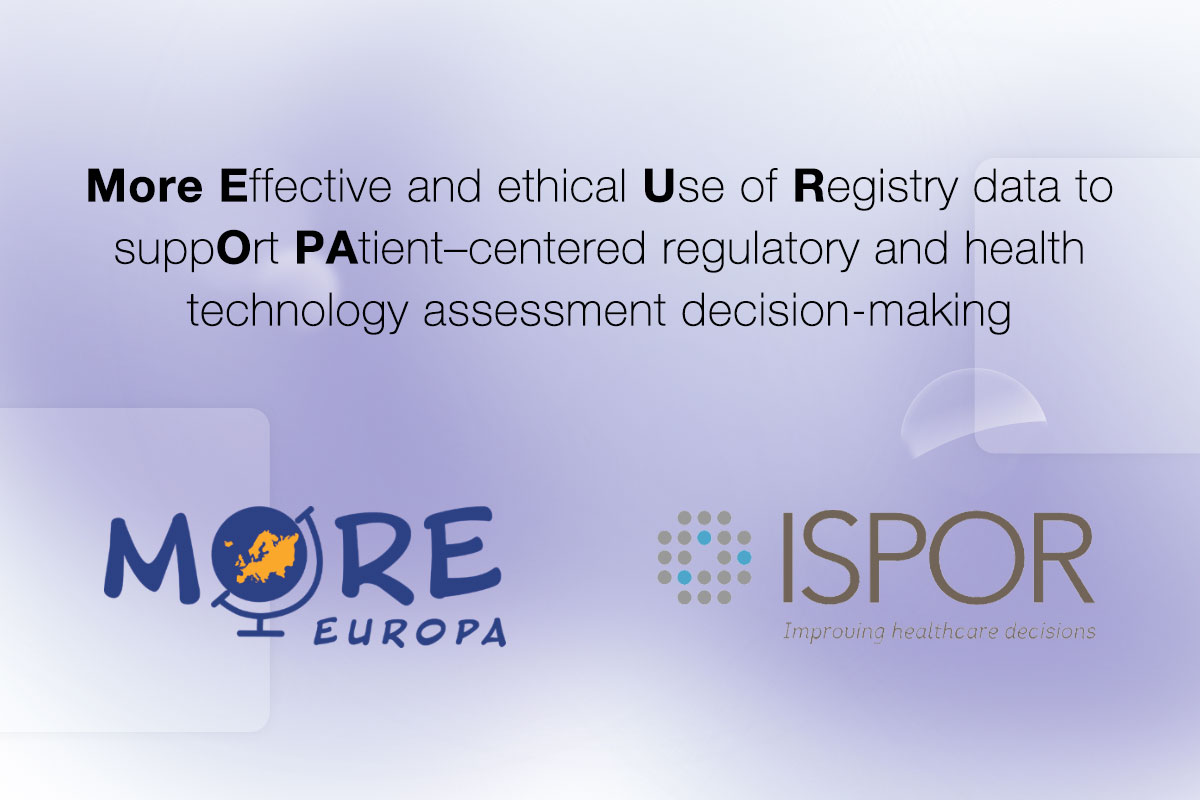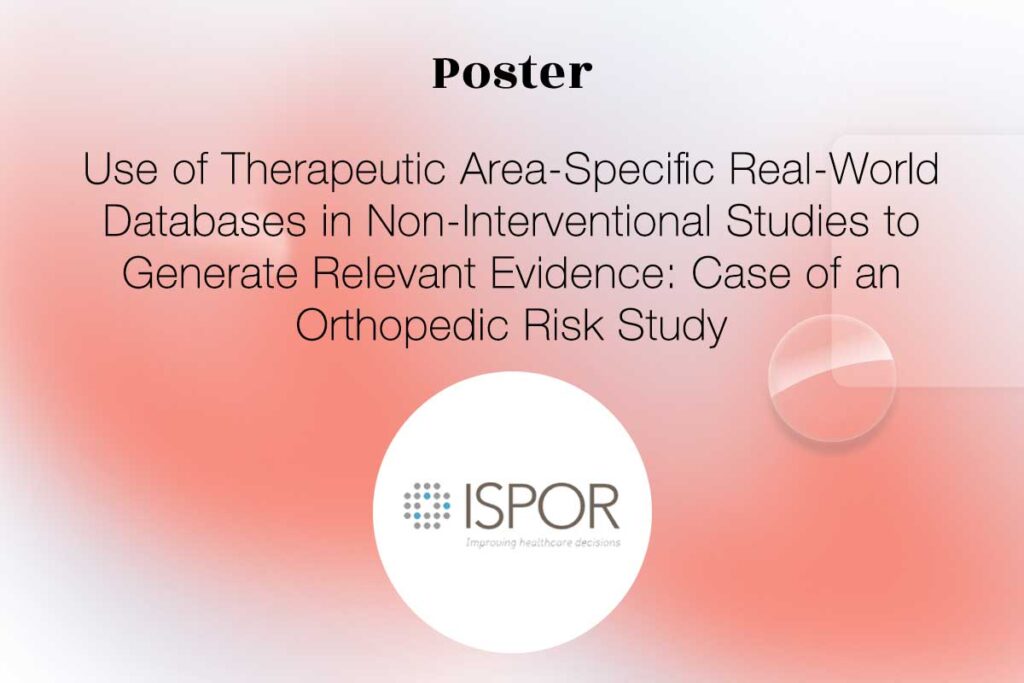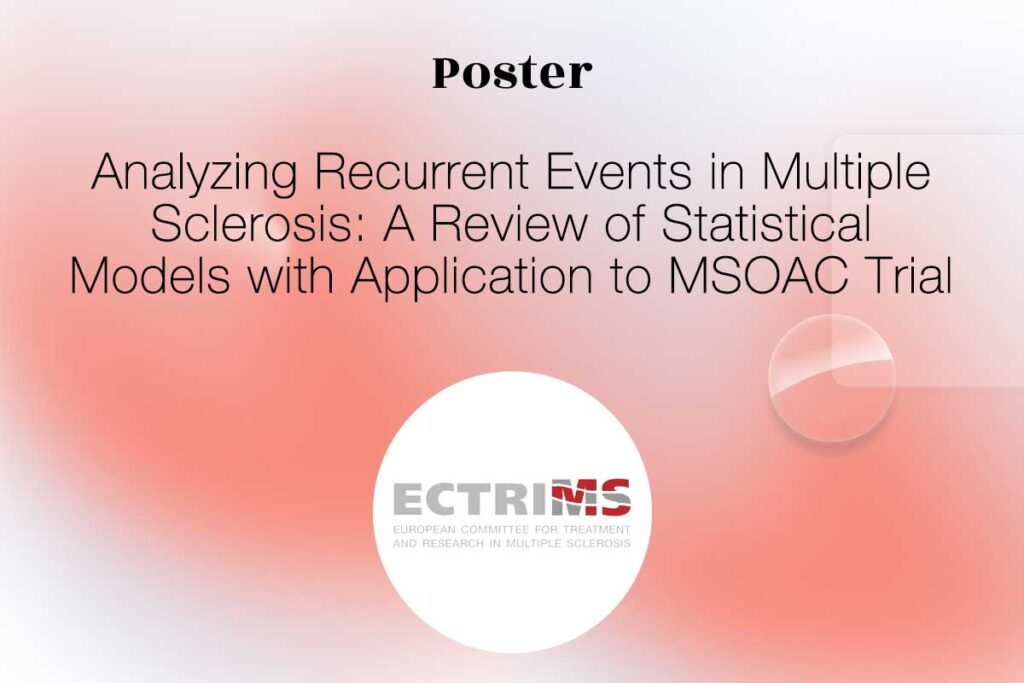In efforts to push for the use of registry data to support patient-centered decision-making in regulatory and health technology assessment (HTA) processes, Quinten Health, expert in AI and data science for healthcare, is taking part in two work packages (WP) within the More-EUROPA consortium. The first is to assess the level of evidence and uncertainty around the use of registry data for pre-licensing exploratory objectives; and the second is leading the design of an automated tool to identify, select and assess fit-for-purpose registries and data elements.
During ISPOR Europe 2023, Quinten Health delivered the early insights of this work through 4 posters:
Development of novel analytical tools
The first poster illustrates insights from a systematic literature review on existing criteria and methods for evaluating the level of evidence and uncertainties to support quantitative decision-making for late-stage clinical trials. This study addresses the ambiguity of Real-World Data (RWD) and complex trial designs, underscoring the necessity for a broader multi-stakeholder perspective, to support decision-making before late-stage trials. These results will support the use of RWD to augment RCT data for late-stage clinical trials, enhancing an efficient drug development cycle.
Identification, selection, and evaluation of suitable registries fit-for-purpose
There were 3 posters illustrating the activities under this work package, using mixed methods research to look into the existing practice and unmet needs of registries identification, selection, and assessment:
The first poster explores the landscape of identifying, selecting, and assessing registries and RWD sources through a systematic literature search. Multiple frameworks and criteria for evaluating registries or RWD on fit-for-purpose approaches (e.g., external control arms, safety, or effectiveness studies) were identified. Despite a common set of criteria, this work demonstrates the lack of seamless integration of both identification and assessment processes, partially stemming from divergent evidentiary needs for HTA or regulatory purposes.
The second poster explores the existing automated tools for evidence generation and registry qualification, through systematic literature search. The findings underline a lack of tools designed explicitly for the identification and assessment of registries. In parallel, a data landscaping exercise allowed for the identification of public or private RWD catalogues and repositories. Their main gap is their dependency on registry holders’ willingness to provide information. This potentially limits the scope of coverage of registries, and their metadata yet enhances the reliability of the available information for the registered RWD sources.
Finally, to complete this exploration phase, the third poster unveils the outcomes of a comprehensive survey and interviews conducted with stakeholders across regulatory, HTA, academia, patient representation, and pharmaceutical fields. The Knowledge, Attitude, Practice (KAP) survey indicates that the main challenge in data access to qualify registries on a fit-for-use.
Quinten Health’s expertise in More-EUROPA
These 4 posters present the initial findings and work from the first year of the More-EUROPA project. Quinten Health is participating in two major activities of this project. The first is to assess the level of evidence and uncertainty regarding the use of registry data for pre-licensing exploratory objectives. The second is to lead the design of an AI automated tool to identify, select, and assess ‘fit-for-purpose’ registries and data elements. The work completed this year sets the foundation for future activities within the next three years of the project. The collaborative efforts of this consortium have resulted in new methodologies and tools that will meet the data and evidentiary requirements of regulatory authorities and HTA bodies. This will lead to a more efficient use of RWD for the development, registration, and assessment of medicinal products in Europe.









